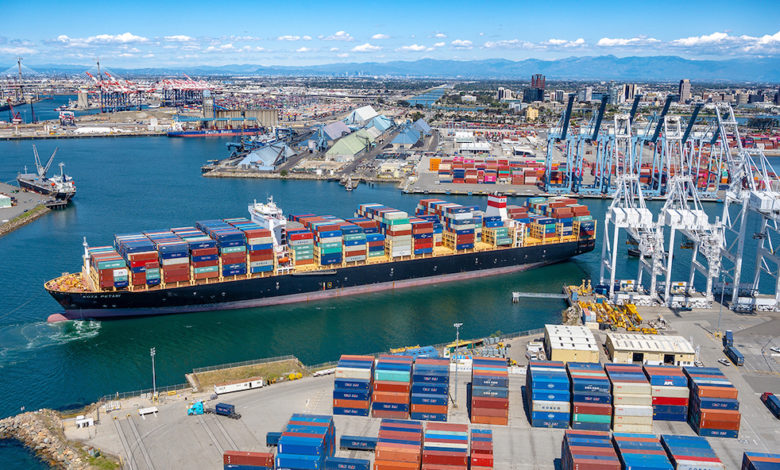Washington debates taking action against global carriers

The stage is set in Washington DC for a bitter fight between global carriers and politicians.
A bipartisan pair of lawmakers, pressed by agricultural exporters, yesterday introduced the Ocean Shipping Reform Act into Congress, a bill which would put in place new minimum requirements for service contracts and give the Federal Maritime Commission (FMC) greater powers.
Carriers have responded to this possible clampdown arguing it is unfair and risks making goods in the US more expensive.
American supply chains have been stretched like never before in peacetime this year, while carriers are on course to post record profits.
The control of shipping by a handful of ocean carriers has really eliminated competition
Representative Dusty Johnson, a co-author of the bill, commented: “It makes it clear that there can be no unreasonable refusal to carry freight. Number two, it improves the enforcement, it does things like, allowing the FMC to self initiate investigations. It allows registration and shipping exchanges, it puts into place anti-retaliation safeguards and, critically important, shifts the burden of proof to the carriers. Then finally, this legislation does a lot to increase transparency with quarterly reports and annual reports to Congress.”
California Democrat John Gerimundi, the other co-author, hit out at what he sees as an oligopoly in container shipping.
“The problem was severe, the control of the shipping by a handful or two handfuls of ocean carriers, really eliminated the competition that had been in place for many, many years prior to the increased consolidation,” Gerimundi said.
The Washington DC-based World Shipping Council (WSC), container shipping’s lobby group, said the proposed act was flawed. The WSC said in statement that liners were not solely responsible for the current supply chain congestion, while the legislation was “infused with fundamental unfairness”.
“The supply chain congestion is widespread. Every link in the supply chain—from marine terminals, to truckers, to rail cars and warehouses—is under tremendous strain. It is unrealistic, inequitable, and unproductive to try to address these supply chain-wide challenges by regulating only one class of supply chain participants—ocean carriers,” the WSC argued, suggesting the legislation was designed to tilt the market in favour of shippers in commercial disputes.
The bill is due for further discussion this month, while other parts of Washington DC are also trying to iron out today’s severe supply chain constraints.
Last month president Joe Biden issued an executive order to address competition in shipping, tapping the FMC to take all possible steps to protect American exporters from the high costs imposed by the ocean carriers and to crack down on unjust and unreasonable fees, including detention and demurrage charges.
In June the White House also announced the creation of a Supply Chain Disruptions Task Force. Led by the secretaries of commerce, transportation and agriculture, the task force aims to bring together stakeholders “to diagnose problems and surface solutions – large and small, public or private – that could help alleviate bottlenecks and supply constraints”.
Other nations, including China, Vietnam and South Korea, have also looked into tackling high shipping costs over the past year.

What happened to the land of the free? The USA chose to move manufacturing overseas because that made bigger profits. now that folly has been exposed those who made the profits are complaining. The same happened with chip fabs.
When a maritime power cedes it maritime capabilities to foreign interests (even if some of those foreign interest are American companies operating foreign flagged fleets) that nation must rely on those carriers to transport their consumables. It’s time America look at a maritime policy that creates a stronger American maritime presence on the high seas. If we want to relay on China and other foreign interest to move our goods, this is what we can expect and I suspect this is just the beginning.
You mean the beginning of the end of USA hegemony. Funny that hardly anyone was complaining when all the profits were rolling in and goods were cheap. The USA is good at handing it out but bleats when it loses out, i.e. it is a bully.
“(even if some of those foreign interest are American companies operating foreign flagged fleets)”. and making huge, untaxed profits for their US owners.
“a stronger American maritime presence on the high seas” So you want to spend trillions on warfare rather than reduce taxes and costs so goods could be manufactured domestically?